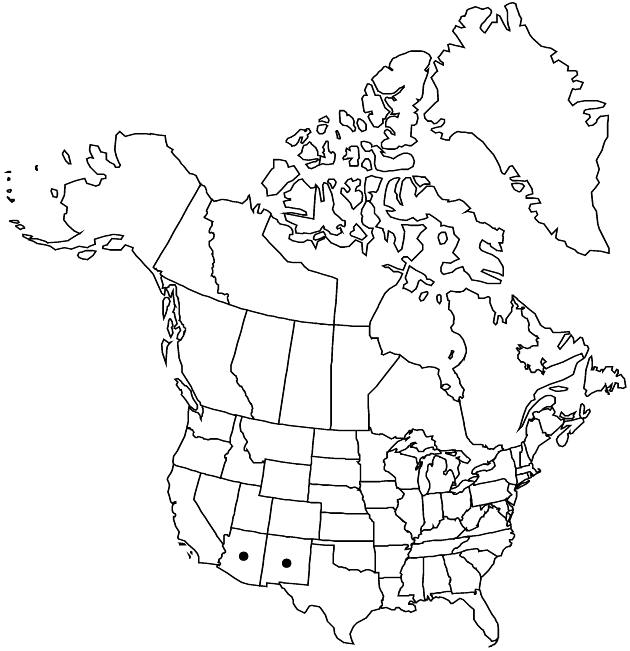Brickellia simplex
Smithsonian Contr. Knowl. 5(6): 73. 1853.
Perennials, 40–60 cm (caudices woody). Stems branched, pubescent. Leaves opposite or alternate; petioles 3–20 mm; blades 3-nerved from bases, deltate to lanceolate, 10–60 × 7–50 mm, bases cordate to truncate, margins crenate-dentate, apices acute, faces sparsely to densely pubescent, glanddotted. Heads borne singly or in open, paniculiform arrays. Peduncles 20–50 mm, glandular-pubescent. Involucres cylindric to broadly campanulate, 12–14 mm. Phyllaries 40–60 in 5–6 series, greenish, 4–6-striate, unequal, margins narrowly scarious (apices acute to acuminate); outer narrowly lanceolate (glandular-pubescent), inner lanceolate (glabrous or tomentulose). Florets ± 60; corollas pale-yellow, often purple-tinged, 9–10 mm. Cypselae 4–5 mm, hispidulous or glabrate; pappi of 32–36 white, barbellate bristles.
Phenology: Flowering Aug–Oct.
Habitat: Oak woodlands, canyons, dry mountain slopes
Elevation: 1500–2700 m
Distribution

Ariz., N.Mex., Mexico
Discussion
Selected References
None.
Lower Taxa
"fine" is not a number.